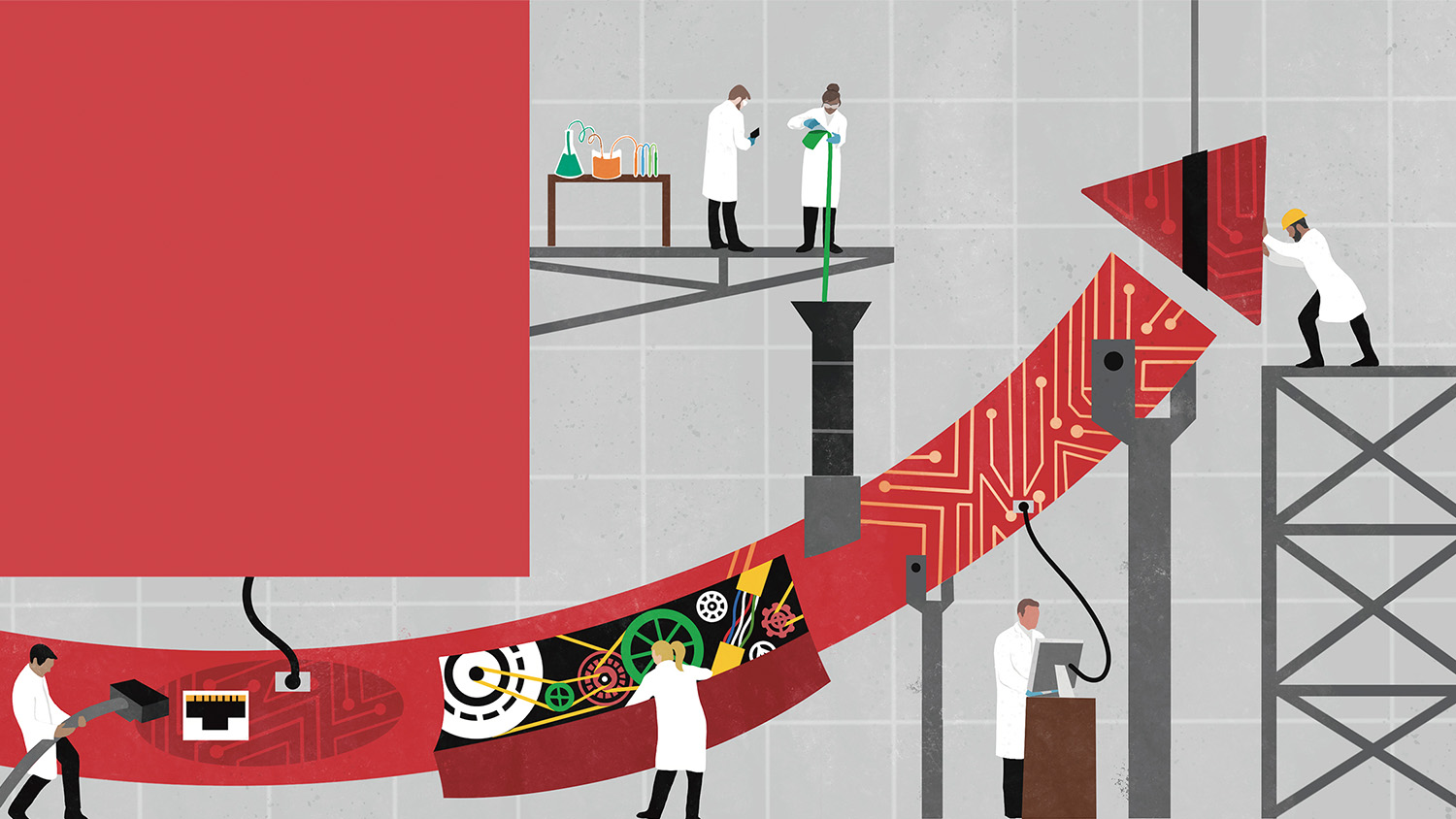Engineering Influx
Growth in tech jobs in the Triangle leads to push for more students at NC State’s largest college.

By Marti Maguire
The spring of 2021 yielded a bounty of tech jobs for the Triangle, with announcements from two of the world’s largest technology companies: a planned Google cloud computing campus in Durham and an Apple research and development hub in Wake County. In the fall, state leaders tapped NC State to help train the growing tech workforce, allocating $50 million over the next two years to increase enrollment in the College of Engineering.
The state budget passed in November included $20 million for the college to add 4,000 students — half undergraduate, half graduate — as well as $30 million for new facilities to accommodate them. Louis Martin-Vega, dean of the college, says the college hopes to expand the faculty by about 100 over the next four to six years, while gradually admitting more students. Plans for facilities will include renovations to existing spaces, as well as adding classrooms and lab space to support the growth.
While the spring job announcements highlighted the departments of computer engineering and computer science, Martin-Vega says the area’s job growth crosses many departments. A planned Fujifilm biopharmaceutical plant in Wake County, for instance, will draw chemical engineers, while artificial intelligence and machine learning skills are in demand at tech companies. “It really cuts across the whole college,” says Martin-Vega.
Engineering Influx By the Numbers
4,000
additional engineering students over five years
36,000 to 40,000
increase in overall enrollment over five years
$30 million
to upgrade facilities
$20 million
for additional faculty and staff
Engineering is the largest of the 11 colleges on campus, with its 10,375 students making up close to one third of the student body. Martin-Vega says higher enrollment will keep the college competitive with peer institutions and allow it to admit more qualified candidates. In 2020, for instance, the college denied admission to more than 1,400 applicants with an unweighted GPA of 3.75 or higher. The job growth also creates opportunities for students to intern and make connections in industry.
“There’s not too many places in the country,” Martin-Vega says, “that can rival the dynamic that exists here in the Triangle.”
- Categories:


